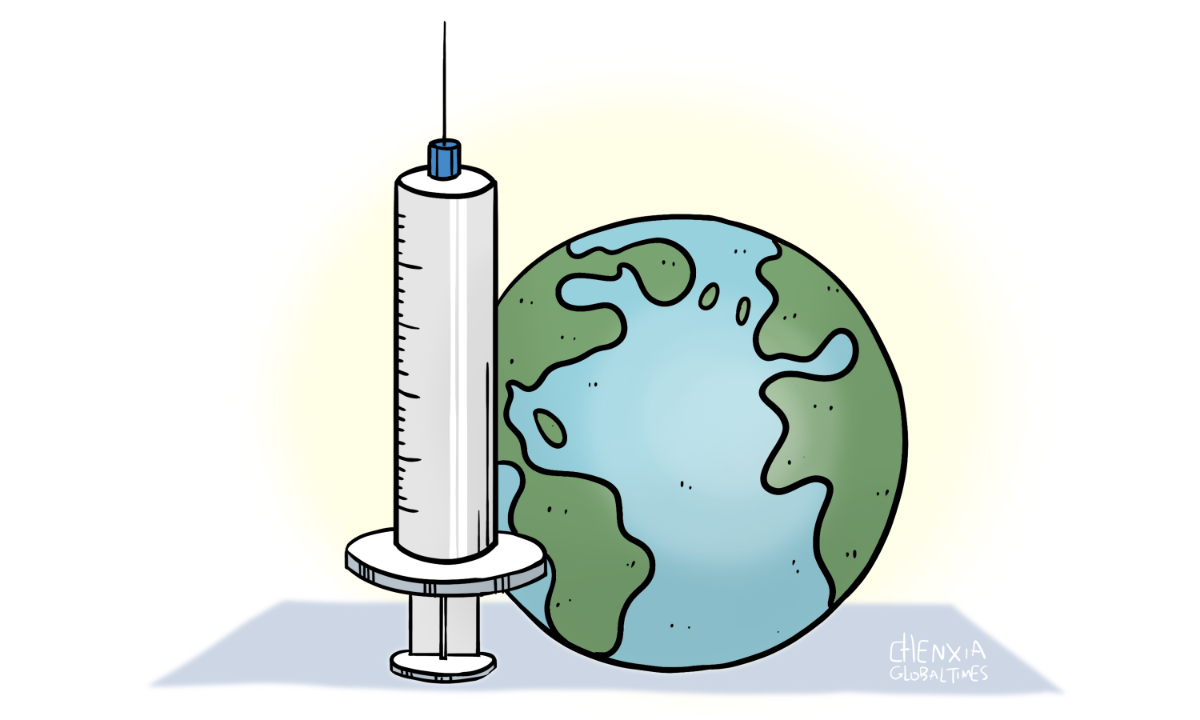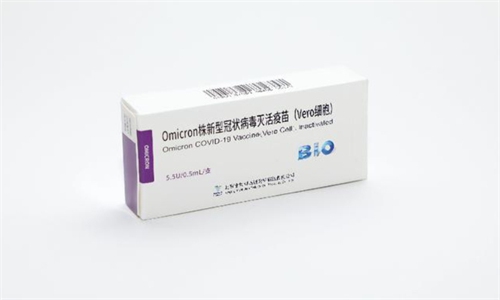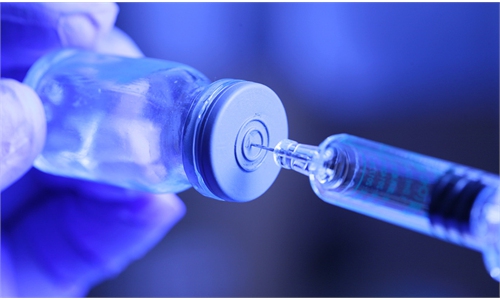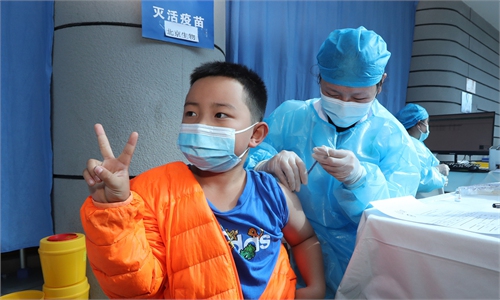
Illustration: Chen Xia/Global Times
The US has always used the provision of COVID-19 vaccines as a means to coerce other countries to join its anti-China alliance, and now its new trick is to exclude China from the international vaccine cooperation. Many fear that latest US move may undermine the process of patent waiver for COVID-19 vaccines supported by some World Trade Organization (WTO) members.
Bloomberg reported Monday that US President Joe Biden's top trade official in Geneva said any WTO agreement related to COVID-19 vaccines "must explicitly exclude China from being able to benefit from the deal." Bloomberg warned "a brewing trade fight between the US and China" may unravel WTO's effort to ease intellectual-property rules for producing COVID-19 vaccines and "further doubt on the WTO's reputation as a negotiating forum."
Against the backdrop of a still dire global pandemic, WTO Director-General Ngozi Okonjo-Iweala has made the patent waiver for COVID-19 vaccines a priority since she took office in 2021. The US, EU, India and South Africa have reached a tentative agreement on key elements of the property waiver, and now the WTO urges delegates from each member states to further discuss the waiver text given the few weeks remaining for delegates to produce a final text for their minister to approve at the 12th Ministerial Conference which has been rescheduled for June 12-15.
Patent waivers for COVID-19 vaccines is a complex process requiring time and effort. Entangled conflicts of interest will be seen while some seek to break the status quo and strike a new balance among different pharmaceutical companies, R&D institutions, and different countries. Since last year, the US government has announced that it supports waiving patent protections for COVID-19 vaccines, but repeatedly claimed that the US must examine ways to prevent China from being a primary beneficiary of the patent waiver.
Objectively speaking, US pharmaceutical giants have their own advantages, but China also possesses a significant vaccine production capability. Mariangela Simao, a WHO assistant director-general for vaccines, said last year that China's Sinopharm COVID-19 vaccines are considered both safe and efficacious. It is a false proposition to think of China as a primary beneficiary of US patent waiver, but why did Washington repeatedly promote the concept to people in the world? The purpose is to emphasize its own advantages and undermine Chinese vaccines, a move that will help create an illusion that the US is taking a huge lead from rivals at developing and producing vaccines.
The US shows a clear ambition to lead and control international vaccines cooperation. As many hope waiving vaccine patents can result in greater vaccine access in developing countries, the US tries to isolate China from global vaccine cooperation and exclude China from the international vaccine industry chain. Such selfish hegemonic mindset could undermine the WTO's push for patent waiver for COVID-19 vaccines.
The WTO's efforts shouldn't be kidnapped by US hegemonic mindset. We believe the WTO doesn't want to turn itself into a platform that propagate hegemonic thinking, and its focus is to promote greater vaccine access in developing countries.
In 2021, a spokesman of China's Ministry of Commerce said China supports a proposal by the WTO for an intellectual property protection waiver on COVID-19 vaccines to enter the consultation stage. China has been making contributions to the accessibility and affordability for vaccines in developing economies, with a large number of vaccines exported to those countries.
China backs actions that are conducive to the developing countries' fight against the pandemic. What we oppose is unreasonable and arbitrary criterion proposed by the US that reflect a hegemonic mentality. It is hoped that all countries can strengthen cooperation within the framework of the WTO and guaranteed the common interests of the developing countries over the issue of patent waiver for COVID-19 vaccines.
The author is a reporter with the Global Times. bizopinion@globaltimes.com.cn



